A puzzle at Hampstead Theatre. Literally, a brain teaser. Its new production, Re-member Me, is a one-man show written and performed by Dickie Beau, whose name is a punning allusion to a bow tie. The oddly spelled word, ‘re-member’ refers to the process of reassembling the separated limbs of a dramatic character during the rehearsal process. The poster for the production centres on Mr Beau dressed in 1980s sports gear and wearing a T-shirt blazoned with the logo of ‘Wittenberg University’, written in German. Enfolding his skull is a rainbow headband.
These details tell us that the play examines the character of Hamlet with a particular focus on the travails of gay actors performing the role during the 1980s Aids epidemic. But this data is intelligible only to those who have already paid for and sat through the production. So as a promotional tool, the poster is useless. Crucially it neglects to mention that the show includes taped reminiscences from John Gielgud, Richard Eyre and Ian McKellen who discuss the unique challenges presented by the play. Why not use these starry names to spark interest at the box office? Very baffling.
The show opens in the same mysterious manner. The curtain rises on a stage scattered with broken tailor’s mannequins which Mr Beau gathers together as if trying to honour the promise about ‘re-membering’ made in the title. Bizarre.
Then the recordings begin and a measure of clarity arrives. Richard Eyre says he was electrified by Peter O’Toole’s Hamlet back in 1963. Ian Charleson, who starred as Eric Liddell in Chariots of Fire, was hired by Eyre to play Hamlet at the Olivier in 1989. Charleson succumbed to Aids early in 1990 and he played the Dane with unsightly lesions clearly visible on his face. The text is about dying and Charleson played it while doing so. As these recordings are relayed, Mr Beau silently mouths every word and delivers a balletic impersonation that seems to illuminate the character of the speaker and to animate their inner life. It’s marvellously original and effective.
The show moves on to Ian McKellen, who admits that he struggles to penetrate Hamlet’s mysterious character and instead delivers ‘notes’ about how the role might be played. Then Gielgud. The doddery old knight comes across as a self-deprecating charmer who modestly admits that his Hamlet was perhaps effective ‘in one or two scenes’. He recalls that as a teenager he was asked what he expected from the theatre. ‘I’m going to be a star,’ he replied. Looking back, he found this flash of ‘impertinence’ shocking and appalling. And yet his show of humility is itself a performance intended to burnish his own legend. As Mr Beau mimes Gielgud’s words he creates an exquisite mini-pantomime of snuffling bombast and self-congratulation. It’s hilarious and yet entirely lacking in malice. Affection and curiosity drive each of these vignettes which are executed with an astonishing degree of humour, skill and delicacy. The lipsyncing is perfect as well. Hours of laborious practice must have been required to raise this amazing show to such a sublime level and yet it’s done with a graceful carelessness and levity. If you’re a fan of Hamlet and you enjoy reading actors’ memoirs, you’ll love this. Hopefully the cryptic poster won’t kill it off prematurely.
The Comedy of Errors is one of Shakespeare’s earliest plays and, let’s be honest, one of his worst. It opens with a long speech by Egeon explaining the impossibly silly plot. Years ago, a shipwreck separated Egeon from his twin sons who are both named Antipholus. The boys were brought up in Syracuse as master and servant. The same shipwreck affected another pair of male twins, both named Dromio, who were raised in Ephesus. As it happens, they grew up as master and servant as well.
Plenty of ridiculous coincidences there and we haven’t yet met the complementary sets of masters and servants. And when they appear, it seems that the masters dress identically and so do both the servants. A series of mistakes unfolds as every character in the play struggles to work out who is who. The mix-ups involve gifts of chains, rope and money, and there’s plenty of comic violence and fisticuffs. The plot is so baffling that the show might benefit from diagrams on stage to keep everyone abreast of the action.
At the end, Egeon returns and makes a second long speech describing what just happened. Sean Holmes’s period-dress production has a first-rate cast led by Michael Elcock as Antipholus (the one from the Syracuse, not from Ephesus). The crowd loved the show because the madcap storyline lends itself well to the Globe’s scrappy, informal, semi-improvised idiom. One of the biggest laughs came from a character in breeches who said: ‘OK.’ Is ‘OK’ Shakespeare? It is now.
Got something to add? Join the discussion and comment below.
Get 10 issues for just $10
Subscribe to The Spectator Australia today for the next 10 magazine issues, plus full online access, for just $10.
You might disagree with half of it, but you’ll enjoy reading all of it. Try your first month for free, then just $2 a week for the remainder of your first year.

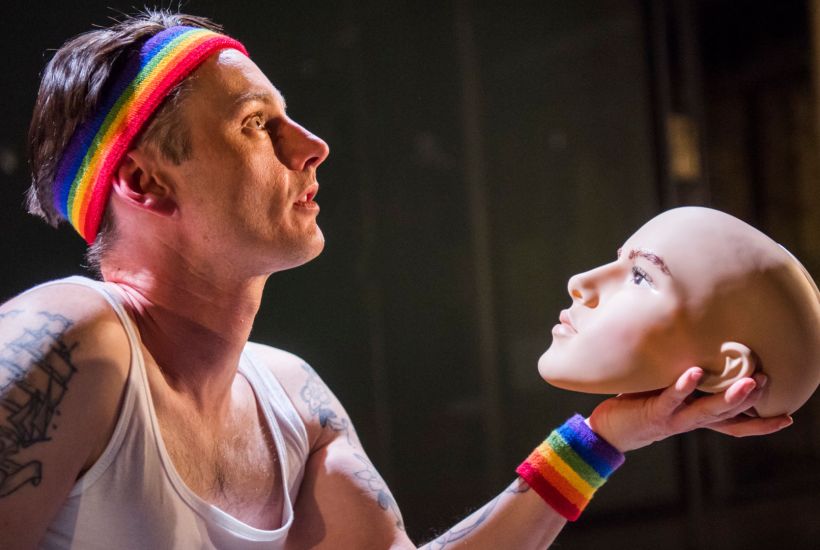
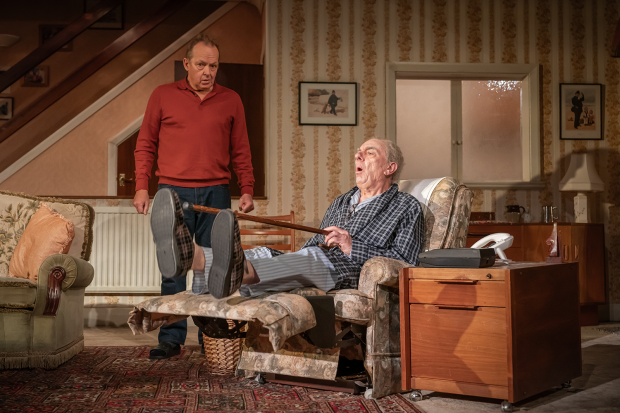

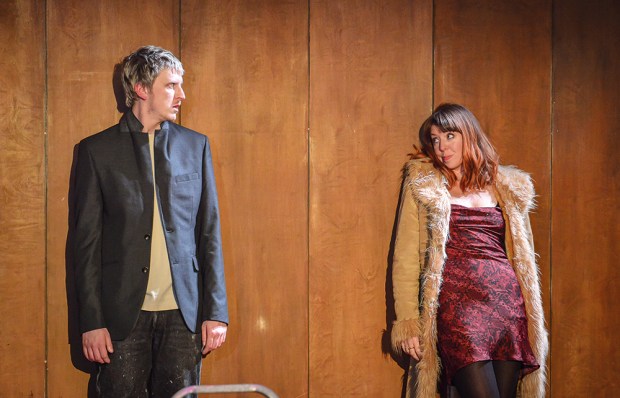
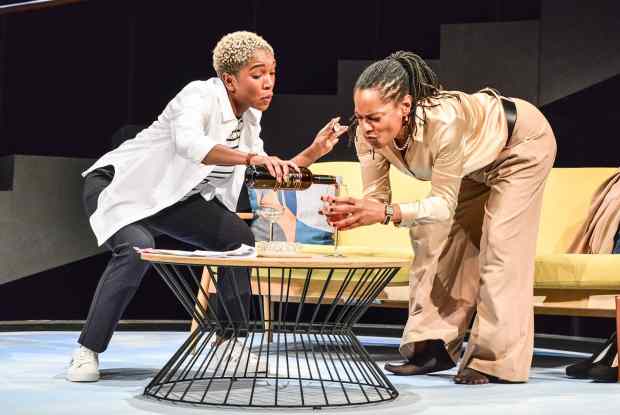
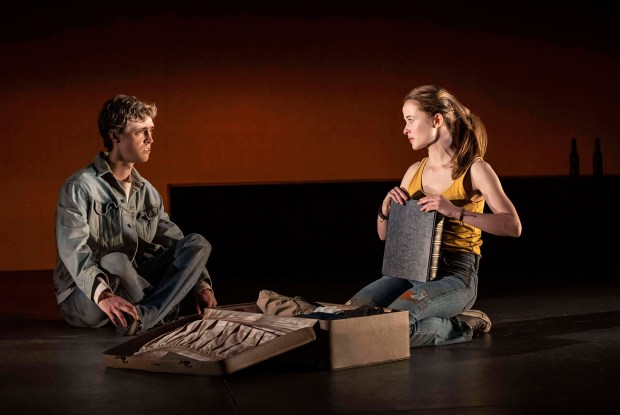
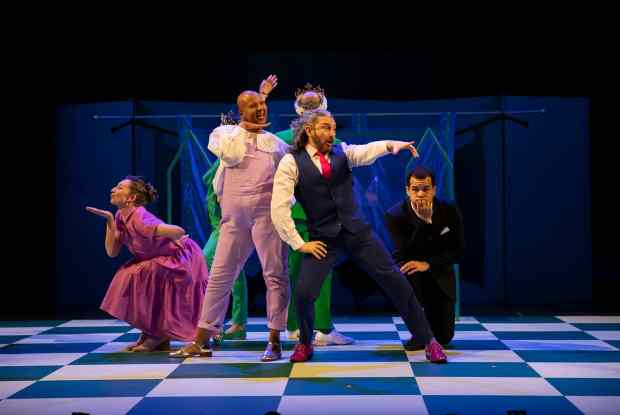






Comments
Don't miss out
Join the conversation with other Spectator Australia readers. Subscribe to leave a comment.
SUBSCRIBEAlready a subscriber? Log in